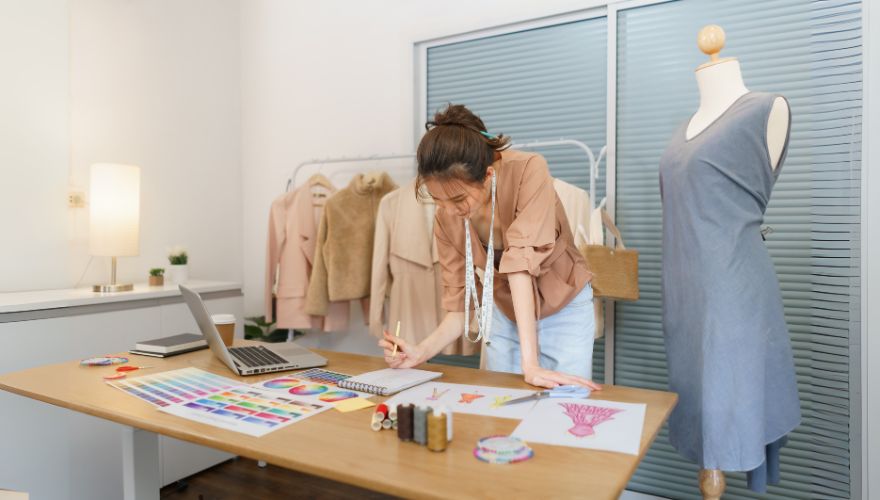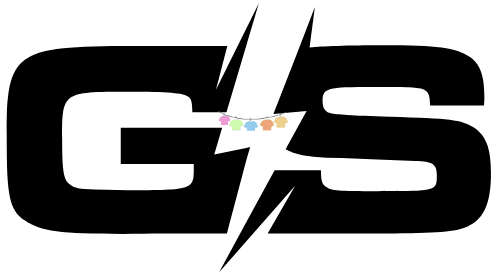
Private-label clothing refers to garments that are manufactured by one company and then sold under another brand name. For those who may be unfamiliar, this model allows retailers to build their own clothing line by partnering with a manufacturer or setting up their own production.
This approach offers entrepreneurs and retail store owners the chance to create exclusive items that expand their catalogs, compete on pricing, and establish a distinct brand identity.
The rise of online marketplaces and the ease of starting e-commerce stores have made private-label clothing an especially attractive option for those entering the fashion industry.
With private labeling, businesses can control the quality of their products, oversee the design process, and ensure that their branding resonates with their target audience. However, starting an apparel line comes with challenges. That’s why brands often choose partners like Gears Sphere to make the process easier from day one. Let’s walk through the steps to build your private label brand.
Topics Discussed
ToggleSteps To Create Your Own Apparel Brand With Private Label
Starting your apparel brand with private label clothing is a cost-effective way to enter the fashion industry without heavy investment. It allows you to test the waters and get your feet wet with minimal upfront costs. There are four steps involved:
Deciding The Type Of Private Label Apparel
When starting a private label clothing brand, the first step is choosing the type of apparel you want to produce. The fashion industry is diverse, with options ranging from streetwear and sportswear to casual basics and luxury pieces.
It’s important to select a category that aligns with both your passion and market demand. Start with market research to understand what’s trending and where the demand lies.
Analyze your competitors, explore customer reviews, and study what your target audience wears, their preferred styles, and color choices. Narrowing your focus early helps you align your vision with your ideal customers’ expectations.
Designing And Developing Your Branding
The next important step is to design and develop your branding. This includes creating a unique logo, catchy slogan, and other visuals or designs that will represent your brand. If design isn’t your strength, you can always consider working with us to help you create a professional, legitimate, and unique brand identity.
Your branding should remain consistent across every piece of marketing material you put out. Whether it’s your website, social media accounts, or even the packaging of your products. That way, your brand stays top-of-mind and easily recognizable.
Finding A Clothing Manufacturer
Once you’ve chosen the type of apparel you want to sell and developed your branding, it’s essential to have clear mockups or a techpack ready. The very next step is to find a reliable apparel manufacturer. One standout option is Gears Sphere, a full package service manufacturer committed to supporting your brand every step of the way.
When choosing a clothing manufacturer, consider these things:
- Fine experience in the industry
- Must not be a middleman
- Expertise in multiple types of apparel
- Low minimum order quantities that support small businesses
- Product quality
- Quality control processes
- Regular updates on your order status
- Fast and reliable delivery timelines (TAT)
- Competitive pricing for samples and bulk orders
If you choose to work with us, we ensure your manufacturing needs are met with professionalism, transparency, and efficiency. Our custom clothing manufacturing services are designed to provide seamless support, from mockup to production. You can learn more about our production process and contact us for a free quotation or even schedule a Zoom meeting.
Let’s Manufacture Custom Apparel For Your Clothing Brand
Pricing Your First Production Work Order
The next step is to price your first production work order. This involves deciding on the styles, color choices, and sizes that will be produced, along with determining the minimum order quantity (MOQ).
It’s crucial to understand your manufacturer’s requirements to ensure your designs align with their production capabilities and standards. By pricing your order upfront, you’ll avoid any hidden costs or surprises down the line.
What Are The Benefits Of Private Label Clothing?
Private label clothing offers a wealth of advantages for businesses, whether it is a startup or an established brand.
Loyal Customer Base
With your private label brand, you have the power to control your image and shape how your customers perceive you. You can decide on the designs to offer, choose the colors and styles that are available, and determine how often you release new collections. It helps you build a loyal customer base that keeps returning to your social media, store, or website, driving consistent business growth.
Cost Effective
One of the key benefits of private label manufacturing is significant cost savings. Bulk ordering reduces your cost per unit while still maintaining high product quality. However, avoid the costly mistake of skipping the sampling phase.
Cutting corners here out of impatience or to save money can lead to poor quality results and unsellable inventory. Always order samples first to inspect the fabric, fit, stitching, and overall finish. A small investment upfront can save you from major losses later.
Increased Margins
Another advantage is that you gain the opportunity to increase your margins. By being the only brand seller, you have the flexibility to set your retail prices and determine how much profit you want to make on each piece of clothing. This control allows you to maximize the return on your investment.
Greater Control and Accountability
With a private label model, you gain hands-on control over every stage of production, ensuring each item meets your exact standards for quality and durability. This level of oversight helps you maintain consistency across your brand, reinforcing your reputation for well-made, reliable apparel.
Additionally, building a direct relationship with your manufacturer makes it easier to address issues quickly. Whether it’s adjusting an order or handling returns, smoother communication and quicker resolutions lead to an improved overall customer experience.
Increased Sales
Private label apparel can help increase your sales by offering products that feel unique to your customers. When shoppers find something that isn’t available everywhere, they are more likely to purchase it from your store.
Increased Efficiency
With this model in place, your business can see a significant increase in efficiency. You won’t have to spend as much time and money on marketing and advertising campaigns because your customers will already know how to find your brand. This makes it easier for you to focus on other important parts of the business.
Ability to Scale
This model also supports the flexibility to scale up your business as it grows. You can increase your production capacity without the need for new equipment or additional facilities, which allows you to save money while expanding. This means you can handle higher demand as your brand becomes more popular, all while keeping costs down.
As your business expands, you can focus on growing your operations more efficiently. With private label manufacturing, the ability to scale is built into the process, helping you to grow your brand faster without significant upfront investments. This level of scalability is a key advantage of working with private label manufacturers.
FAQ
How do you start your own private label business?
Starting a private label clothing brand begins with brainstorming and coming up with private-label product ideas. First, you need to choose a product category that suits your brand vision. After identifying a promising category, it’s time to do some research. Look for private-label manufacturers in that sector and reach out to them. Ask about their pricing and manufacturing processes to see if their services align with your needs and if they’re a good fit for your brand. Once you’ve found the right manufacturer, you’ll need to handle the branding and marketing of your products, which can be done either on your own or with the help of a professional. With the right manufacturing teams and branding teams in place, you can successfully launch your own private-label products and start selling them.
Is Private Label and White Label Clothing the same thing?
No, they are not the same. Private label is when a company sells pre-made garments that can be customized with brand details like logos or designs. On the other hand, white label involves the process of selling a generic product without any exclusive design or brand customization. This means Private Label offers a unique identity, while White Label provides unbranded, ready-to-sell items.
What is an example of a private label brand?
An example of a private label brand is Kirkland Signature from Costco. This brand offers various products, such as diapers, which are made by the same company that produces Huggies but sold at a lower price. Other popular examples of private label brands include Up and Up from Target, Great Value from Walmart, and Insignia from Best Buy. These brands allow the retailers to offer quality products at competitive prices by working with manufacturers to create unique products under their own brand names.
How much does private labeling cost?
Starting a private-label business typically costs between 700-1,000$. The most significant expenses are related to ordering samples, as well as setting up the logistics of your business, which includes creating a website, arranging payment processing, and handling order fulfillment. These initial costs are essential to get your private-label business up and running smoothly.
How much does it cost to copyright clothes?
If you want to register your clothing brand with the USPTO (United States Patent and Trademark Office), the essential cost starts at around $350 per class of goods. The fee depends on the type of offering you include under your brand. For brands covering multiple categories, it may be necessary to buy several trademarks to ensure full protection across different product lines.








